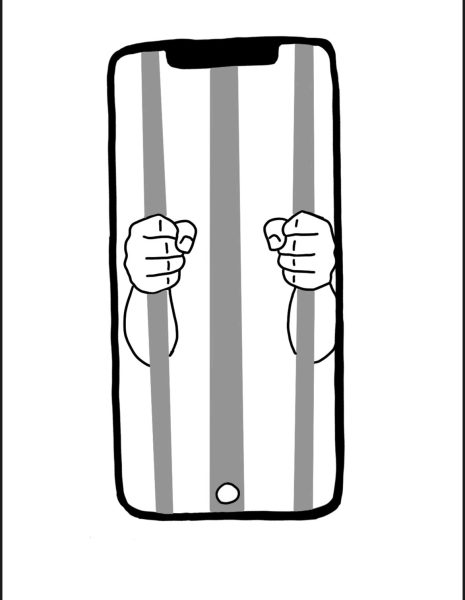The odds are in our favor and it’s time to legalize sports betting
March 27, 2022

Although sports betting has been around since 1877, it wasn’t until 1992 that states began to legalize this form of gambling. From there, Congress passed the Professional and Amateur Sports Protection Act of 1992, which banned all sports betting in the United States with the exception of four states which had already established legal sports betting operations: Nevada, Delaware, Oregon and Montana. Since the Supreme Court reversed the ban in 2018, however, Americans have spent over $65 billion on sports betting. Today, over 30 states have legalized it, and millions of Americans can legally gamble on sports games. This November, California residents will have the opportunity to vote on whether they believe the state should legalize sports betting. Californians should vote “yes” to legalizing sports betting because it generates state revenue and provides better security for betting.
First and foremost, gambling helps stimulate the economy through tax revenue. In 2017, an Oxford Economics study estimated a gross gambling revenue of $11.9 billion per year if sports betting were legalized in casinos, retail and online platforms in all U.S. states. In California, these extra funds could contribute to transportation, education and healthcare.
While many believe that legalizing this controversial game would lead to gambling addictions, sports betting is actually one of the least addictive types of gambling. According to the Entertainment and Sports Programming Network, less than one percent of people who called the Nevada Council on Problem Gambling Helpline listed sports betting as the type of gambling they struggled with most. These hotlines found the majority of their calls regarding money-spending addictions were about lotteries, scratch-off tickets and casino activities such as poker and slots.
Lotteries, for example, are one of the most addictive forms of gambling, and they are legal in 44 states. The odds of winning with a California Super Lotto Plus ticket is one in 42 million. In sports betting, however, an individual has much better odds because they have the opportunity to bet for a favored team in any single sports game. In 2017, the U.S. Census Bureau found that Americans spent $71 billion on lottery tickets despite the odds. The 44 states that have legalized the lottery have increased tax revenue as a direct result. Legalizing sports betting will have the same effect and give people a larger chance to win.
Although some argue that sports betting can be risky, keeping it illegal is the real danger. According to the United Nations Office on Drugs and Crime, illicit sports betting is an unsecured way to gamble money as it functions through a series of non-government regulated businesses. These illegal companies generate up to $1.7 trillion annually and cover up their illegal activities using cryptocurrency. According to an interview from Sacramento News, Nathan Click, an online gaming initiative spokesperson, believes that legalizing sports betting would help curb gambling on the black market.
“Californians already spent billions of dollars on illegal offshore online sports betting marketplaces,” Click said. “They don’t have any consumer protections, they don’t have any age verification and what our initiative would do would take on the black market and follow the path of the other states that legalized online sports betting.”
Since the majority of illegal sports betting occurs on the black market, it is challenging for the authorities to crack down on these companies. From 2003 to 2013, The Federal Bureau of Investigation (FBI) tracked down two different illegal sports betting companies out of Panama City, Panama, who had been running illegal sports gambling rings for over 10 years. The FBI uncovered the enterprise Legendz Sports, a criminal business operation that illegally ran sports gambling services online and over the phone. Legendz Sport used the money from their profits to create a money laundering business. It took over 10 years for the FBI to charge Legendz Sports for an illegal gambling business, money laundering and racketeering conspiracy. This was one company of hundreds.
If sports betting were legalized, we would be funding fewer illegal gambling companies and would cut down on the amount of offshore money laundering in the U.S. As a result, people would be able to bet straight through casinos and sportsbooks, where they limit criminal activity and generate money for the state through taxes.
No one is forced to participate in sports betting, but those who choose to participate need a safe place to do so. If people are going to gamble on sports anyway on the black market, California should legalize it and use that extra money to improve our communities and help better solve problems in our society.






















